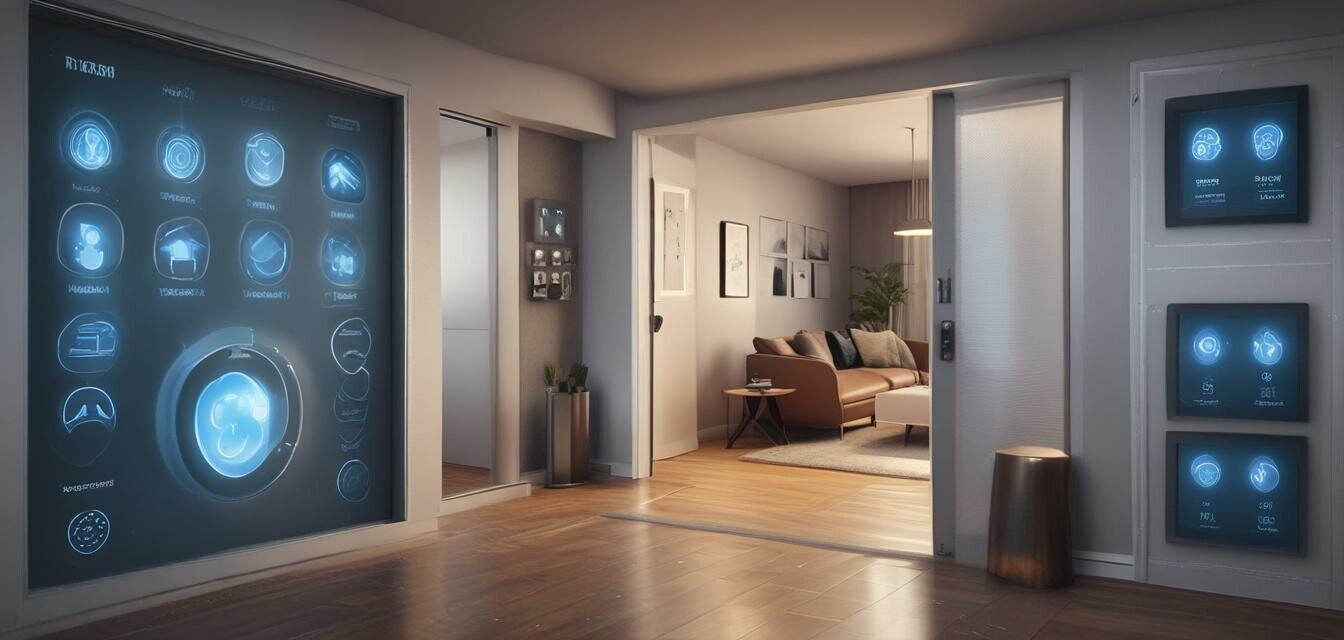
The Role of Biometrics in Smart Home Security
Key Takeaways
- Biometrics enhances security through unique biological traits.
- Modern systems are integrating facial recognition and fingerprint scanners.
- Biometric data must be protected to ensure privacy and security.
- Users benefit from convenience and faster access compared to traditional methods.
- Emerging trends indicate broader adoption of biometrics in home security.
As we move further into 2025, the landscape of smart home security continues to evolve with advancements in biometric technology. This article delves into how these innovations are becoming integral parts of modern home security systems, exploring their benefits, potential security implications, and what the future may hold.
Understanding Biometric Technology
Biometric technology refers to methods for uniquely recognizing humans based on physical or behavioral traits. This includes technologies such as:
- Fingerprint recognition
- Facial recognition
- Voice recognition
- Iris recognition
How Biometrics Enhances Security
Integrating biometric technology into smart home security systems allows for unparalleled security enhancements. Traditional lock systems can be vulnerable to tampering, but with biometrics, access is granted only to authorized individuals. Here's a look at some of the most significant benefits:
| Benefit | Description |
|---|---|
| Unique Identification | Every individual's biometrics are unique, making unauthorized access nearly impossible. |
| Convenience | No need to remember passwords or carry keys; access is instantaneous through biometric recognition. |
| Activity Monitoring | Biometric systems can track who enters and exits a home, enhancing security awareness. |
| Integration with Other Systems | Many biometric systems can seamlessly integrate with smart home devices, enhancing overall security protocols. |
Current Trends in Biometric Home Security
The application of biometric technology in home security is increasingly being adopted. Here are some notable trends:
- Facial Recognition Technology: As cameras become more sophisticated, facial recognition is becoming a cornerstone of smart security systems.
- Mobile Biometrics: More homeowners are using their smartphones to manage biometric systems, creating a mobile security command center.
- Enhanced Data Security: With the rise of biometric systems, manufacturers are putting more focus on data encryption and privacy protections.
Security Implications of Biometric Systems
While biometric vectors improve security, they also come with important challenges:
| Concern | Description |
|---|---|
| Data Breaches | Compromised biometric data could allow unauthorized access, emphasizing the need for robust data protection measures. |
| Privacy Issues | Storing and handling biometric data poses privacy concerns, requiring transparent practices from manufacturers. |
| False Positives/Negatives | Biometric systems are not foolproof and may occasionally grant access to unauthorized individuals or deny access to authorized ones. |
The Future of Biometric Home Security
As technology continues to advance, the future of biometric home security looks promising. Expect further integration with artificial intelligence and machine learning technologies, allowing systems to become smarter and more responsive. Moreover, improvements in the accuracy and efficiency of biometric systems will enhance user experience. Homeowners looking for advanced security solutions should keep an eye on:
- Advancements in multi-factor authentication systems
- More versatile biometric options (like combining facial and voice recognition)
- Smart home devices that become increasingly interconnected and user-friendly
Conclusion
Biometric technology is shaping the future of smart home security in profound ways. By leveraging unique biometric traits, homeowners can enjoy enhanced security, convenience, and peace of mind. However, as we embrace these new technologies, it is equally important to address the accompanying challenges related to data privacy and system reliability. Staying informed about innovations and best practices will empower homeowners to make educated decisions about their security needs.
Pros
- Enhanced security through unique identification
- Convenience and ease of access
- Ability to monitor access events effectively
- Integration with other smart home technologies
Cons
- Concerns over data breaches and privacy
- Potential for inaccuracies
- High initial setup costs
- Need for regular updates and maintenance
For more information on smart home solutions, explore our extensive guides on home security systems, smart locks, and buying guides that can help you navigate the best technologies to protect your home.
